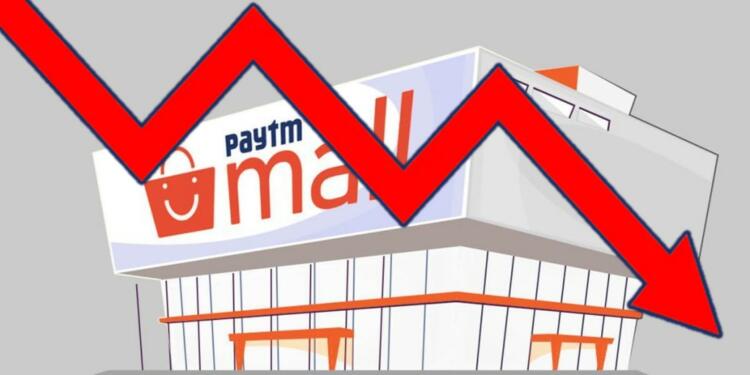Paytm Mall, the much publicised e-commerce arm of Vijay Shekhar Sharma led Paytm witnessed a crash in market value with the exit of Alibaba. Jack Ma led Alibaba sold its 43% stake in the business for 42 crore rupees, bringing the effective valuation of Paytm Mall at around 90 crore rupees from above 2 billion or 15,000 crore rupees.
Paytm Mall was opened in 2017 with the aim to take on likes of Amazon and Flipkart and Vijay Shekhar Sharma raised $445 million (about Rs2,900 crore) from SoftBank and Alibaba for Paytm Mall. This gave the eCommerce marketplace of Paytm, which had started operations in 2017, a valuation of $2 billion.
Although the people at Paytm are trying to defend the business valuation with arguments like “The exit price of any investor(s) in the company via capital reduction process is not reflective of the valuation of the company and neither does the exit have any link to any FDI laws”, the reality remains that Paytm Mall has not been able to compete with the behemoths like Amazon and Walmart owned Flipkart which have billions of dollars to burn for discounted sales.
Retailing is a capital-intensive & labor-intensive business with razor-thin margins. So the businesses like Amazon or Reliance, which have alternative sources of income and are ready to burn billions of dollars to get market dominance can only survive in such businesses.
Paytm Mall is also looking to raise more capital and adapt to rapidly evolving business models in digital commerce space. “Despite investing significant amounts of capital in growing its business and expanding market share, the company suffered operational losses,” Paytm E-commerce said in a statement. “Given that the online business space is evolving rapidly with the onset of unique business models, changing technologies and new regulations, it is expected that additional capital and efforts will be required to be committed,” it added.
However, given the loss of trust by big backers like Alibaba, it is unlikely that any firm will trust Paytm with its capital. The startup space is already losing the shine with investors pulling billions of dollars from the Indian firms and parking their money in US treasury funds. Amid this environment, it will be a very tough battle for Vijay Shekhar Sharma led Paytm.
Although, some ray of hope is emerging with the launch of Open Network for Digital Commerce (ONDC). ONDC looks to democratize e-commerce and end the deep discounting habits of American MNCs through which they get market dominance.
“Keeping in mind our attention to building an open platform for eCommerce,” Sharma tweeted, “Paytm Mall’s s business now be built on ONDC.” He added that the business will be “cost-effective, scalable and bring even larger impact to small businesses”
Paytm must ensure that it gets a large share in ONDC-enabled digital commerce. Otherwise, it will be bad for Indian startup space which is growing at an exponential rate and has become the third-largest ecosystem after the United States and China. Paytm was and is one of the flagbearers of India’s startup community and it must succeed to keep investors trusted and invested in the ecosystem.



























